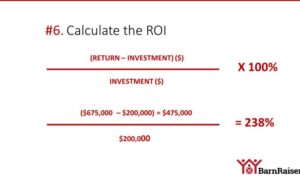Diving into the world of small business finance, we uncover the vital role of financial planning in driving success and sustainability. From navigating economic challenges to avoiding pitfalls, effective financial planning is the cornerstone of a thriving small business.
As we explore the key components, strategies, and tools for financial planning, small business owners will gain valuable insights to secure their financial future.
Importance of Financial Planning for Small Businesses

Financial planning is a critical aspect of running a successful small business. It involves setting financial goals, creating a budget, monitoring cash flow, and making strategic decisions to ensure the financial health of the business. Effective financial planning can help small businesses navigate economic challenges, make informed business decisions, and achieve long-term growth.
Navigating Economic Challenges
- During economic downturns, having a solid financial plan in place can help small businesses weather the storm by identifying areas to cut costs, securing financing, and adapting business strategies to stay afloat.
- By forecasting revenue and expenses, small businesses can anticipate cash flow fluctuations, plan for seasonal changes, and make adjustments to maintain profitability.
Consequences of Poor Financial Planning
- Without proper financial planning, small businesses may struggle with cash flow shortages, overspending, or unexpected expenses, leading to financial distress and potential business failure.
- Failure to monitor key financial metrics or prepare for contingencies can leave small businesses vulnerable to economic uncertainties, market volatility, and competitive pressures.
Benefits of Incorporating Financial Planning
- By integrating financial planning into the overall business strategy, small businesses can set clear financial objectives, track progress towards goals, and make informed decisions based on financial data and insights.
- Financial planning enables small businesses to allocate resources effectively, optimize profitability, and identify opportunities for growth and expansion in the marketplace.
Components of a Financial Plan for Small Businesses
Financial planning for small businesses involves several key components that are essential for long-term success. These components help business owners make informed decisions and manage their finances effectively.
Budgeting and Forecasting
Budgeting and forecasting play a crucial role in financial planning for small businesses. By creating a budget, business owners can allocate resources efficiently, track expenses, and identify potential areas for cost savings. Forecasting, on the other hand, allows businesses to anticipate future financial needs and plan accordingly.
Setting Financial Goals and Objectives
Setting clear financial goals and objectives is vital for small businesses. This helps owners stay focused, motivated, and on track towards achieving their financial targets. Whether it’s increasing revenue, reducing debt, or expanding operations, having defined goals provides a roadmap for success.
Monitoring Financial Metrics
Small businesses should regularly monitor key financial metrics to assess their financial health and performance. These metrics can include profitability ratios, liquidity ratios, and efficiency ratios. By tracking these metrics, businesses can identify trends, spot potential issues, and make informed decisions to improve their financial position.
Strategies for Financial Management in Small Businesses
Effective financial management is crucial for the success of small businesses. By implementing sound strategies, businesses can ensure stability and growth. Here are some key strategies for managing finances in small businesses:
Managing Cash Flow Effectively
One of the most important aspects of financial management is managing cash flow effectively. This involves monitoring incoming and outgoing cash, ensuring that there is enough liquidity to cover expenses, and planning for future financial needs.
- Regularly review cash flow statements to track money movement.
- Implement strategies to accelerate receivables and delay payables.
- Consider establishing a line of credit to cover cash shortfalls.
Managing Debt and Credit Wisely
Managing debt and credit wisely is essential for maintaining financial health. Taking on too much debt can strain cash flow, while utilizing credit effectively can help businesses grow.
- Avoid taking on excessive debt that cannot be comfortably repaid.
- Negotiate favorable terms with creditors to reduce interest costs.
- Regularly monitor credit score and work towards improving it.
Minimizing Financial Risks and Maximizing Opportunities
Minimizing financial risks and maximizing opportunities is key to sustainable growth. By identifying potential risks and capitalizing on opportunities, small businesses can thrive in a competitive environment.
- Diversify revenue streams to reduce dependency on a single source of income.
- Conduct market research to stay ahead of industry trends and competition.
- Invest in technology and innovation to improve efficiency and competitiveness.
Creating a Financial Cushion
Building a financial cushion for unexpected expenses is essential for small businesses. Having reserves in place can help businesses weather financial storms and seize opportunities for growth.
- Set aside a portion of profits for emergency funds or contingencies.
- Consider insurance options to protect against unforeseen events.
- Regularly review and adjust financial goals to ensure adequate reserves.
Tools and Resources for Financial Planning in Small Businesses
Financial planning is crucial for the success of small businesses, and utilizing the right tools and resources can make a significant difference in managing finances effectively.
Financial Planning Tools for Small Businesses
- Accounting Software: Platforms like QuickBooks, Xero, and FreshBooks offer features for bookkeeping, invoicing, and financial reporting.
- Financial Management Apps: Tools such as Mint and Wave provide budgeting, expense tracking, and financial goal setting functionalities.
- Financial Forecasting Tools: Software like LivePlan and Float help small businesses project future financial outcomes based on current data.
Benefits of Using Accounting Software
Implementing accounting software in small businesses can streamline financial processes, improve accuracy, and enhance decision-making by providing real-time insights into the company’s financial health.
Key Resources for Financial Planning Guidance
- Small Business Administration (SBA): The SBA offers resources, tools, and guides for financial planning, including information on loans, grants, and budgeting.
- Local Small Business Development Centers: SBDCs provide free one-on-one consulting, workshops, and training to help small businesses with financial planning and management.
- Industry Associations: Joining industry-specific associations can provide access to financial planning resources tailored to the unique needs of a particular sector.
Streamlining Financial Processes with Technology
Technology plays a vital role in simplifying financial tasks and enhancing decision-making processes in small businesses. By automating repetitive tasks, utilizing cloud-based solutions, and leveraging data analytics, technology can optimize financial operations and facilitate strategic planning.

